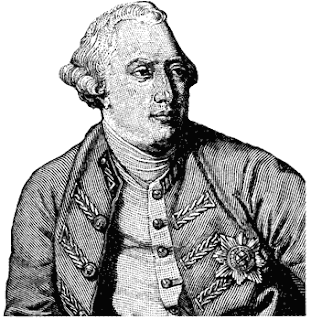
Kafka's "A little fable" at The Modern Word
The work of Franz Kafka seems a good source for graphic novelization, and Vincent Stall's 2004 illustration of Kafka's "A little fable" is currently featured at The Modern Word. By way of introduction The Modern Word's editorial director Allen B. Ruch writes:
“A Little Fable” (“Kleine Fabel,” in the original German) is a paragraph-long short story masterpiece by Kafka. I ran across a wonderful mini-comic adaptation of it by the American comic book artist Vincent Stall around 2004. I contacted Vincent, who graciously allowed us to re-publish the comic online here at The Modern Word. I was planning to post it when Vincent’s graphic novel, Brass Tack, was to be published, but when Brass Tack got delayed this somehow fell through the cracks, as well.
 "I have written a number of good sentences"
"I have written a number of good sentences"Good writers write, and great writers think of nothing else but writing. That's the writer's craft, the equivalent of the pianist's "practice, practice, practice." Learning how to string words together in entertaining and thoughtful order is a matter of diligence and, if a writer is lucky, some amount of talent. The internet has given a springboard to much of this talent, much of it woefully unpaid, but good writers usually achieve some recognition beyond the computer keyboard, and the great writers -- well, the truly great will always care more about expression than recognition. Still, as Dorothy Parker once remarked, the two most beautiful words in the English language are "check enclosed."
Patrick Karp writes often, and writes well, in his blog Anecdotal Evidence about the intersections of life and art, the demands of daily living and the needs of the artist. Here is an excerpt from a recent post in which Karp describes one writer's utterly simple yardstick of measure.
In every realm of human endeavor I’m increasingly attracted to the informal, amateur, self-driven, wayward, unregulated and independent, particularly in writing.
In 1977, six years before his death at age eighty, Eric Hoffer writes in his notebook: “Disraeli felt that `nothing could compensate his obscure youth, not even a glorious old age.’ Practically all writers and artists are aware of their destiny and see themselves as actors in a fateful drama. With me, nothing is momentous: obscure youth, glorious old age, fateful coincidences--nothing really matters. I have written a number of good sentences. I have kept free of delusions. I know I am going to die soon.”
I most admire Hoffer’s freedom and the way he revels in it and uses it so productively.
Also on Anecdotal Evidence, Karp posts about a charming story told by Jacques Barzun of youngsters hop-scotching their way across a playground-graphic computer keyboard, giggling and tapping out a four-letter word. "Did they spell it right?" the teacher asks.
Also on Anecdotal Evidence, Karp posts about a charming story told by Jacques Barzun of youngsters hop-scotching their way across a playground-graphic computer keyboard, giggling and tapping out a four-letter word. "Did they spell it right?" the teacher asks.







 ual impact on twentieth-century poetry and ecology -- the actual sinew, flesh and bone of man's place on the planet -- has been considerable, and has continued so for more than 50 years. Reviewing
ual impact on twentieth-century poetry and ecology -- the actual sinew, flesh and bone of man's place on the planet -- has been considerable, and has continued so for more than 50 years. Reviewing 





